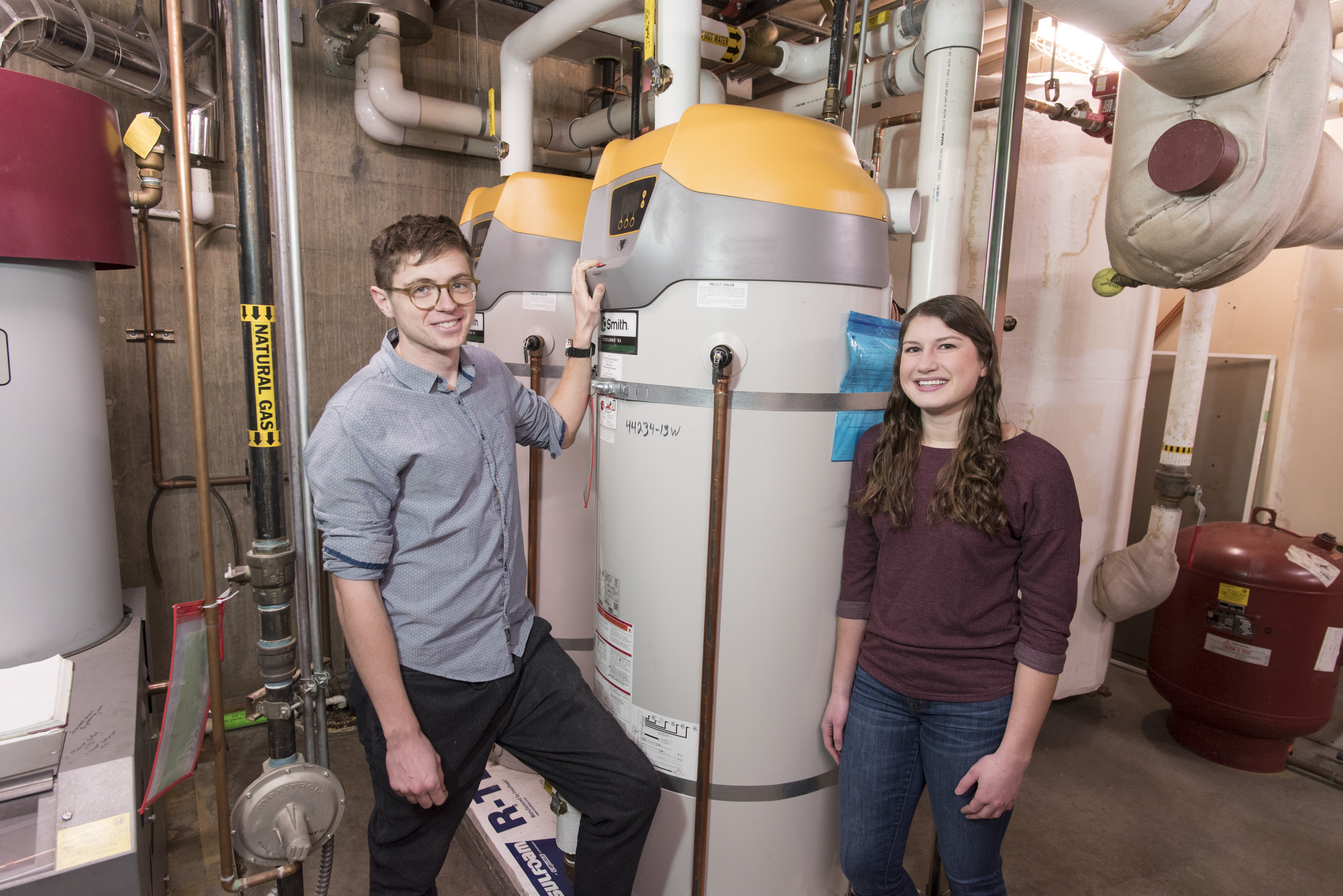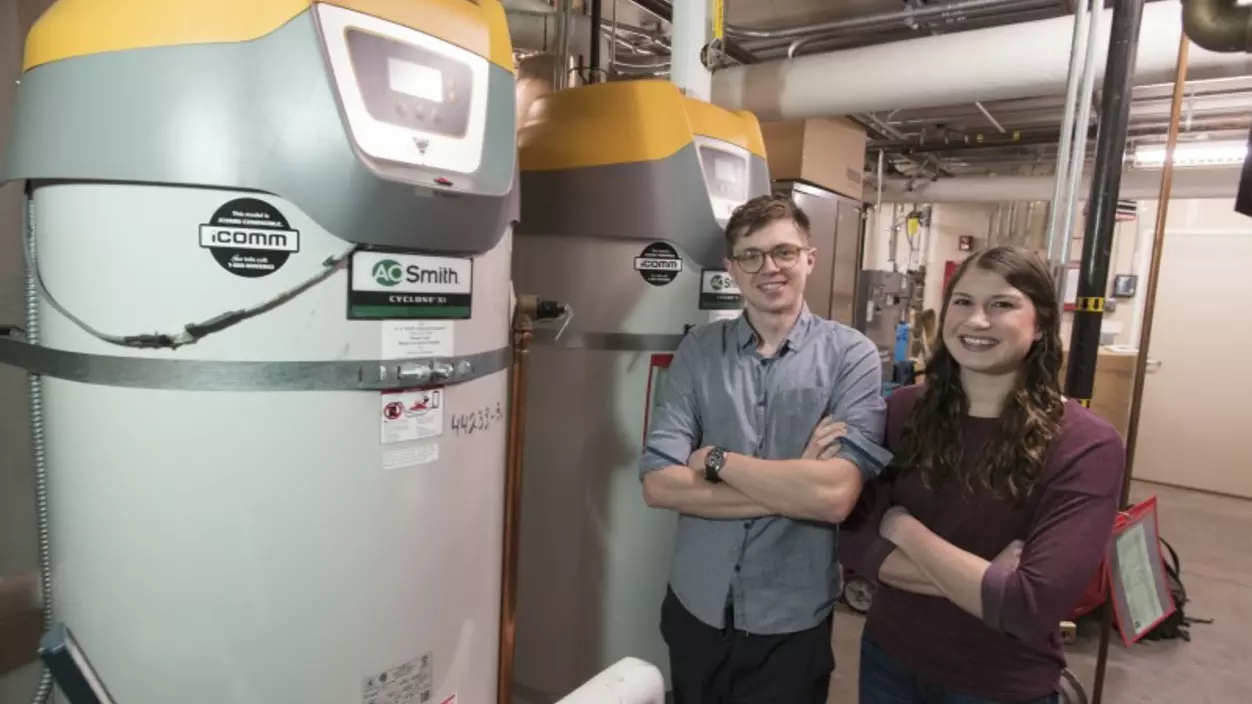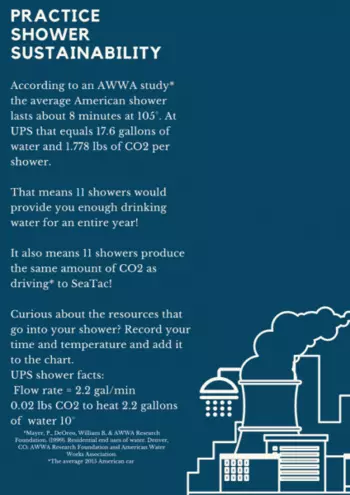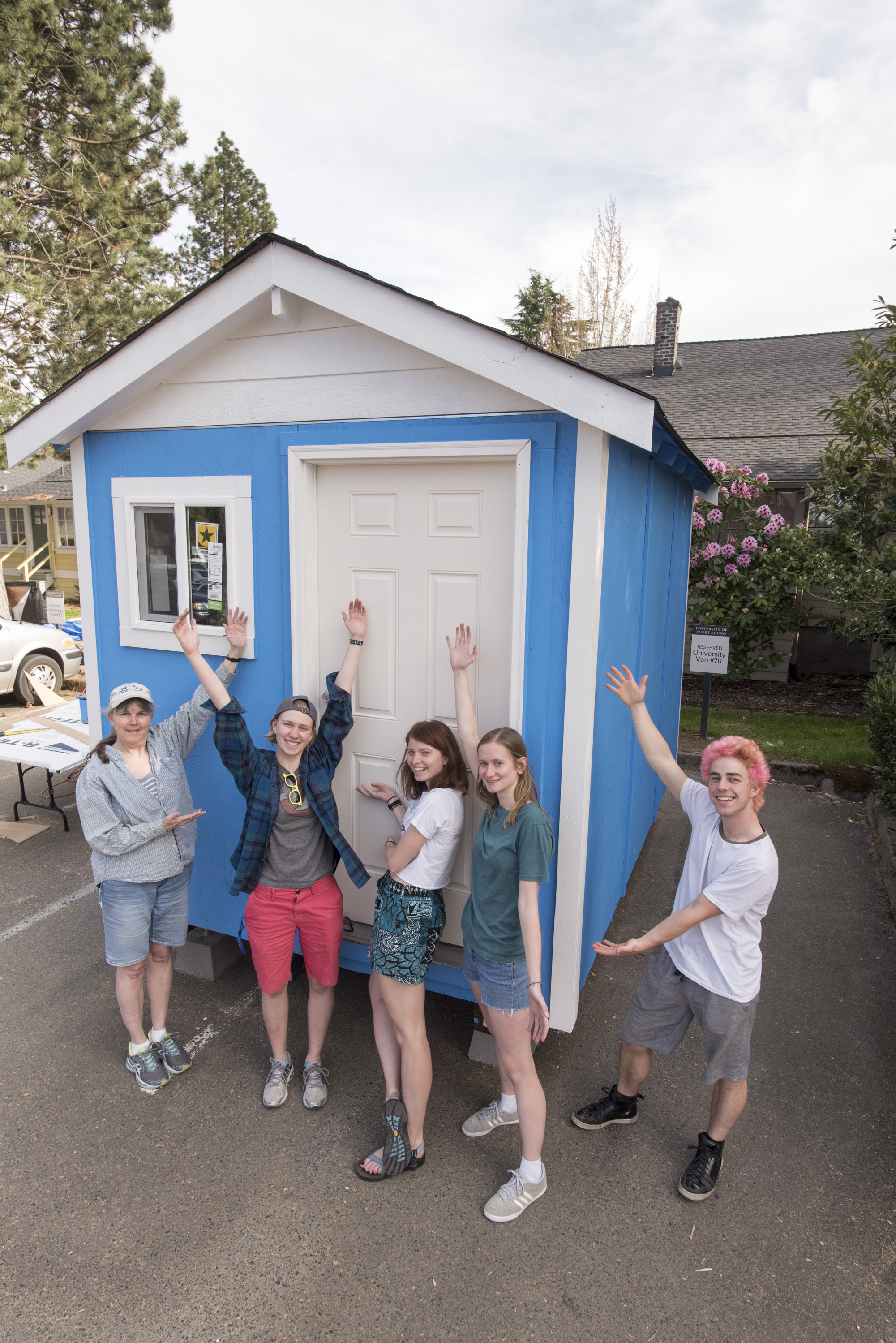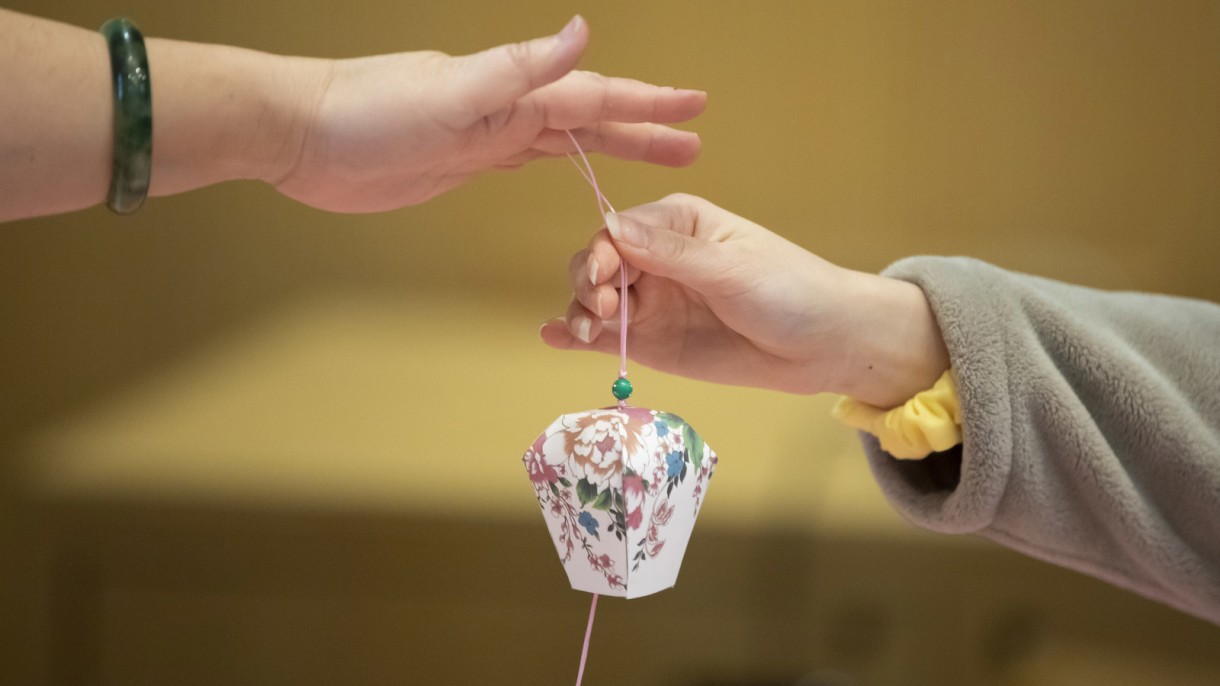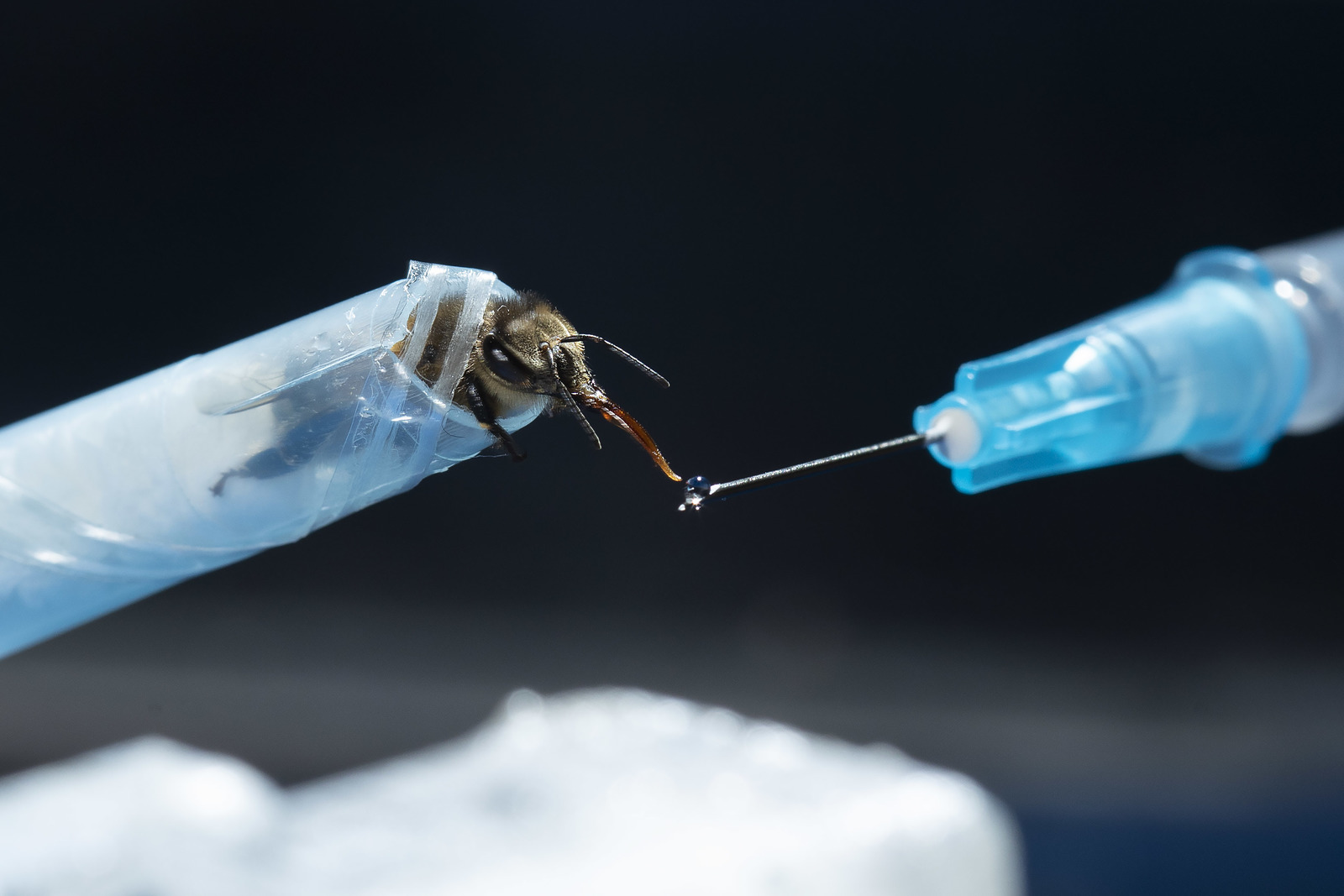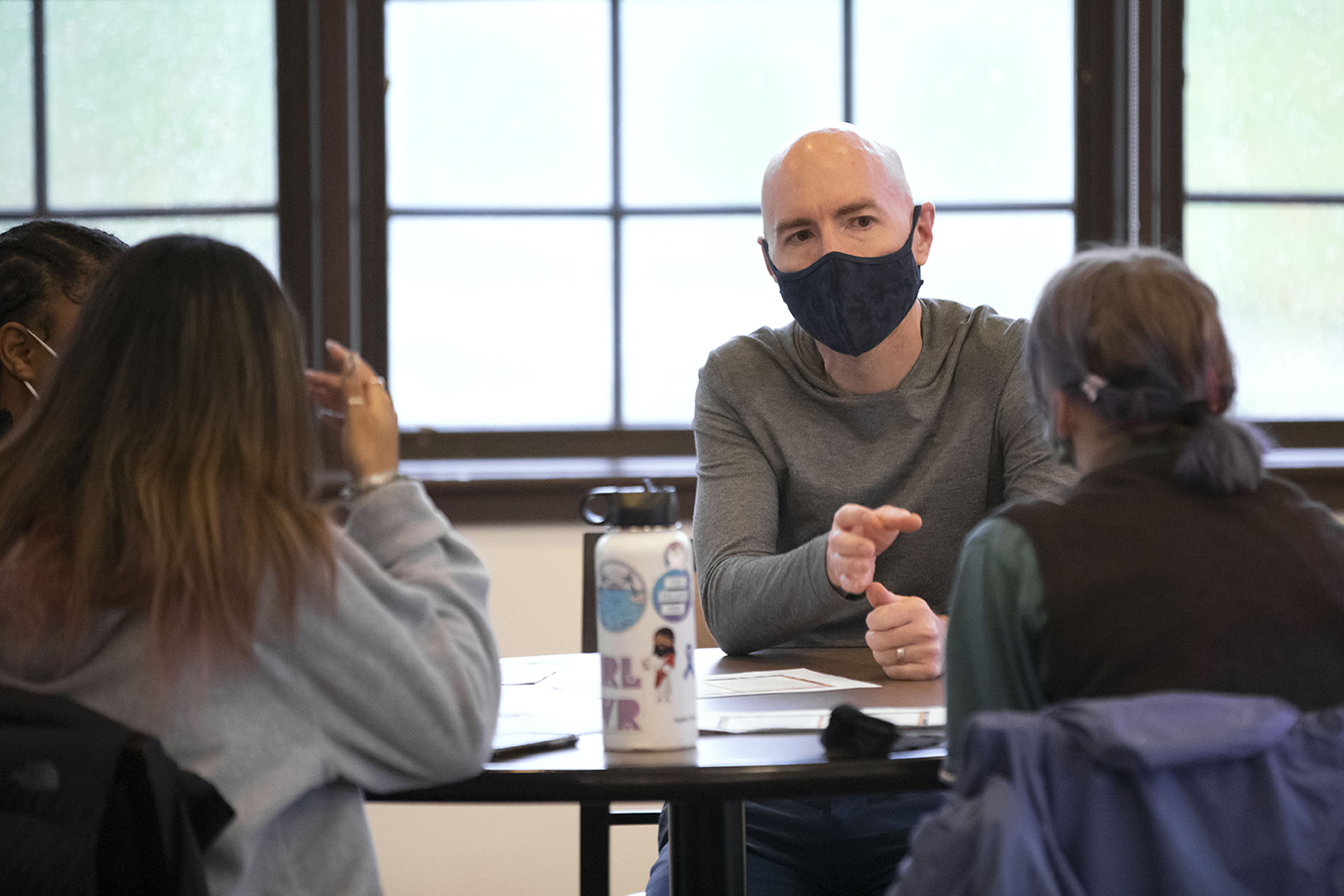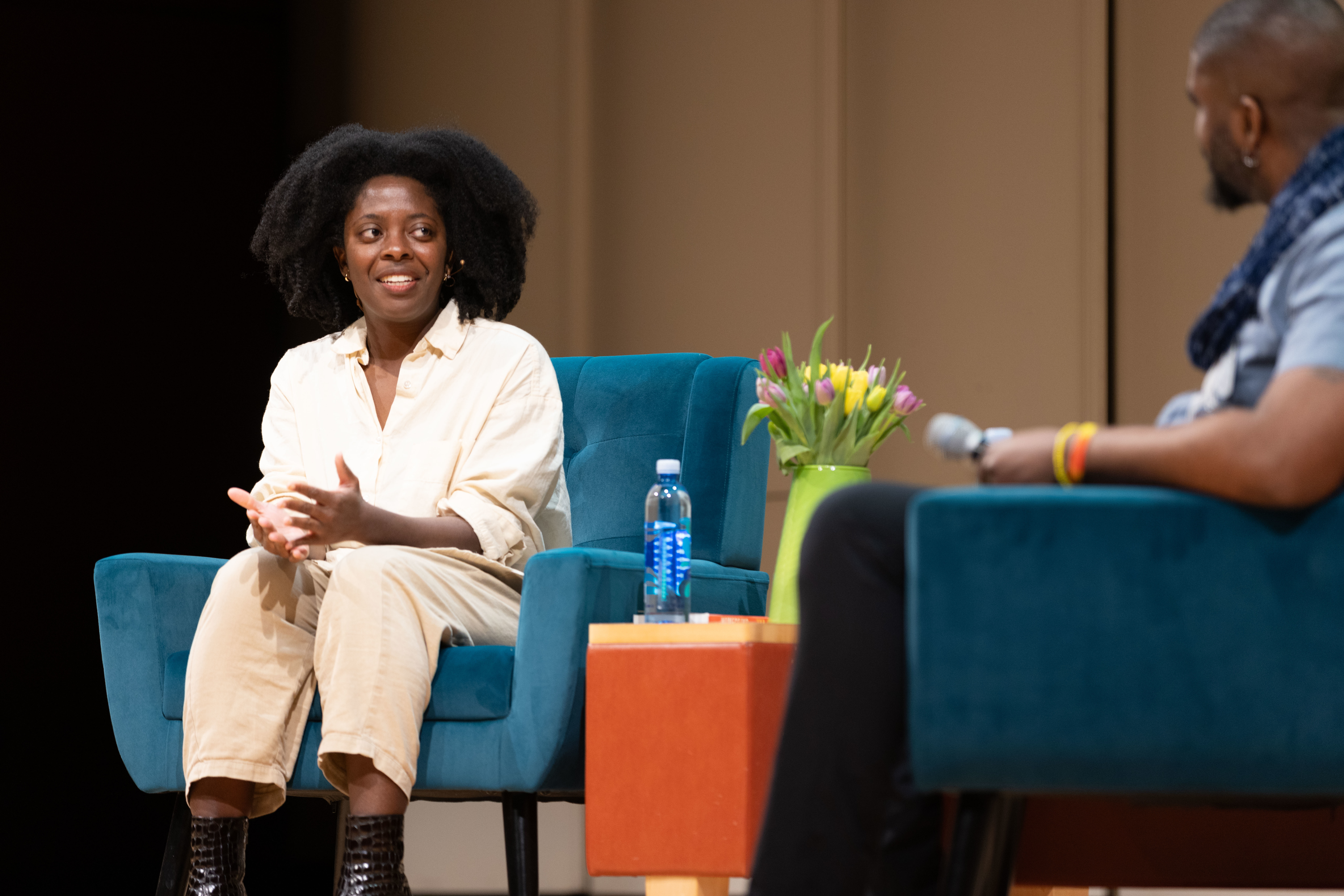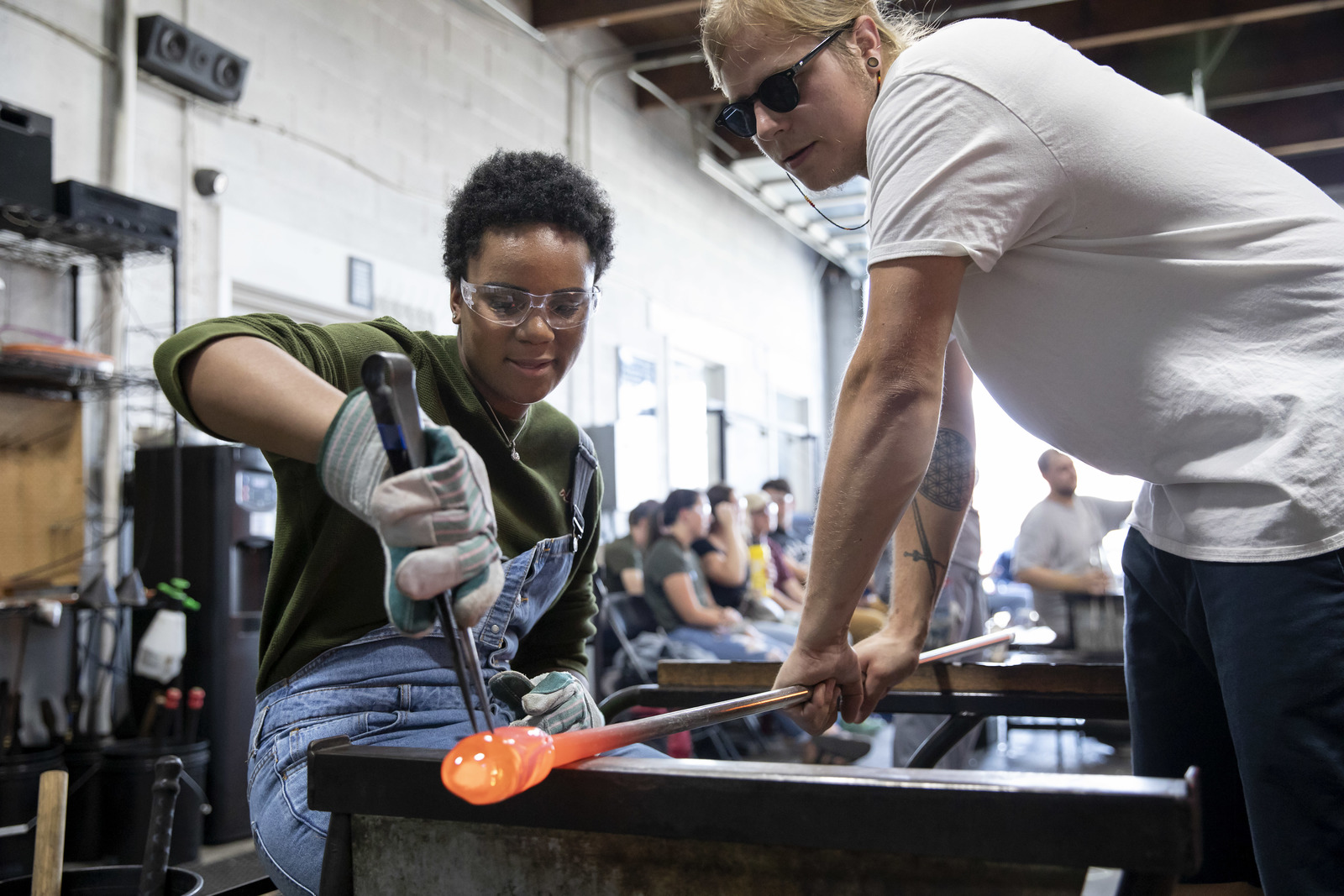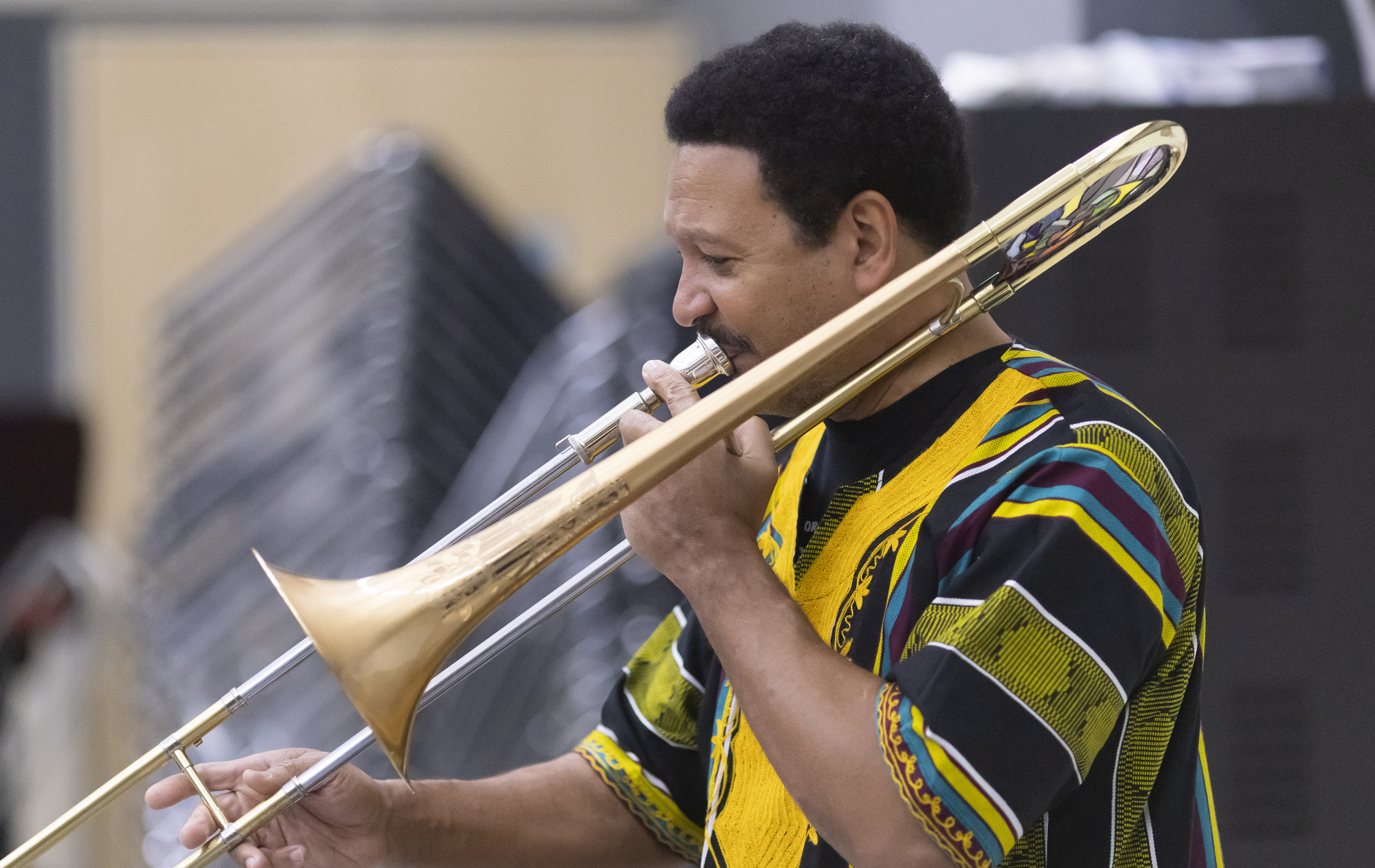Fashions may change. Technologies may evolve. But the average American continues steadfastly to spend 7.8 minutes in the shower—no more, no less. That’s how it was 20 years ago, and that’s how it is today.
Student researchers Shelby Kantner ’18 and Matthew Gulick ’18 want you to know that for each gallon of hot water in those millions of daily showers, the heating fuel used sends 1.92 pounds of carbon dioxide into our atmosphere. That’s a chunk of Co2 the weight of six iPhone 7s.
Last summer the two students, along with Maya Bittmann ’19 and Bjorn Hoffman ’18, tried to move that shower dial—at least on campus—by conducting research into how to motivate students to make their showers a little shorter, and a little cooler.
Their research proposal, led by Amy Fisher, assistant professor in science, technology, and society, and Lynnette Claire, professor in business and leadership, won a $10,000 grant from Puget Sound Energy, in a contest co-sponsored by Independent Colleges of Washington (ICW). The annual contest looks for undergraduate research ideas on more efficient ways to use our state’s energy resources. ICW said that if the Puget Sound winners found a workable plan to save energy on hot water, it could serve as a model for other campuses.
